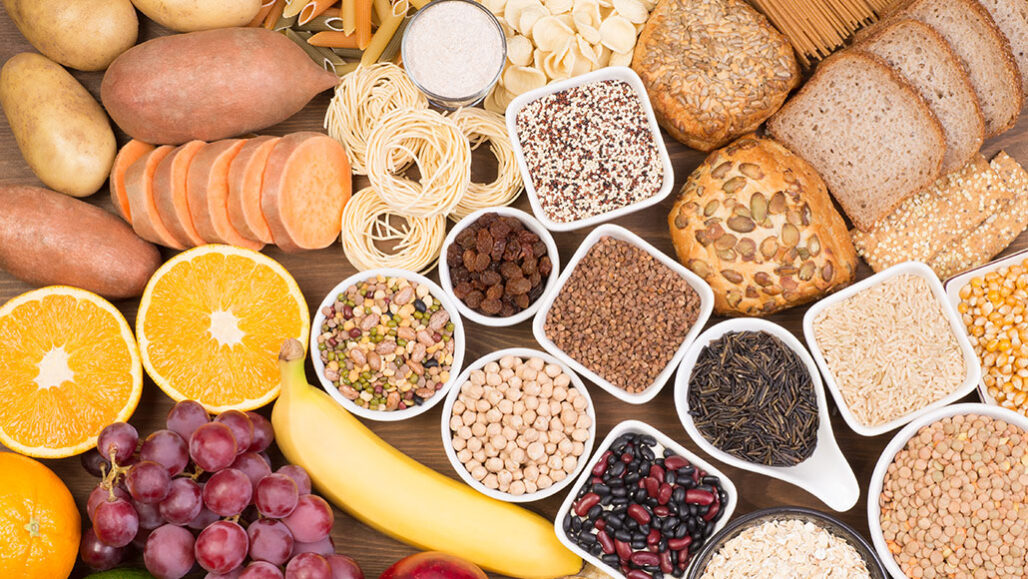bond: (in chemistry) A semi-permanent attachment between atoms — or groups of atoms — in a molecule. It’s formed by an attractive force between the participating atoms. Once bonded, the atoms will work as a unit. To separate the component atoms, energy must be supplied to the molecule as heat or some other type of radiation.
carbohydrates: Any of a large group of compounds occurring in foods and living tissues, including sugars, starch and cellulose. They contain hydrogen and oxygen in the same ratio as water (2:1) and typically can be broken down in an animal’s body to release energy.
carbon: The chemical element having the atomic number 6. It is the physical basis of all life on Earth. Carbon exists freely as graphite and diamond. It is an important part of coal, limestone and petroleum, and is capable of self-bonding, chemically, to form an enormous number of chemically, biologically and commercially important molecules. (in climate studies) The term carbon sometimes will be used almost interchangeably with carbon dioxide to connote the potential impacts that some action, product, policy or process may have on long-term atmospheric warming.
cell: The smallest structural and functional unit of an organism. Typically too small to see with the unaided eye, it consists of a watery fluid surrounded by a membrane or wall. Depending on their size, animals are made of anywhere from thousands to trillions of cells. Most organisms, such as yeasts, molds, bacteria and some algae, are composed of only one cell.
cellulose: A type of fiber found in plant cell walls. It is formed by chains of glucose molecules.
chemical: A substance formed from two or more atoms that unite (bond) in a fixed proportion and structure. For example, water is a chemical made when two hydrogen atoms bond to one oxygen atom. Its chemical formula is H2O. Chemical also can be an adjective to describe properties of materials that are the result of various reactions between different compounds.
compound: (often used as a synonym for chemical) A compound is a substance formed when two or more chemical elements unite (bond) in fixed proportions. For example, water is a compound made of two hydrogen atoms bonded to one oxygen atom. Its chemical symbol is H2O.
fruit: A seed-containing reproductive organ in a plant.
hydrogen: The lightest element in the universe. As a gas, it is colorless, odorless and highly flammable. It’s an integral part of many fuels, fats and chemicals that make up living tissues. It’s made of a single proton (which serves as its nucleus) orbited by a single electron.
molecule: An electrically neutral group of atoms that represents the smallest possible amount of a chemical compound. Molecules can be made of single types of atoms or of different types. For example, the oxygen in the air is made of two oxygen atoms (O2), but water is made of two hydrogen atoms and one oxygen atom (H2O).
oxygen: A gas that makes up about 21 percent of Earth's atmosphere. All animals and many microorganisms need oxygen to fuel their growth (and metabolism).
ratio: The relationship between two numbers or amounts. When written out, the numbers usually are separated by a colon, such as a 50:50. That would mean that for every 50 units of one thing (on the left) there would also be 50 units of another thing (represented by the number on the right).
starch: A soft white chemical made by all green plants. It’s a relatively long molecule made from linking together a lot of smaller, identical building blocks — all of them glucose, a simple sugar. Plants and animals use glucose as an energy source. Plants store that glucose, in the form of starch, as a reserve supply of energy. Animals that consume starch can break down the starch into glucose molecules to extract the useful energy.

